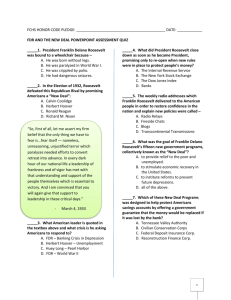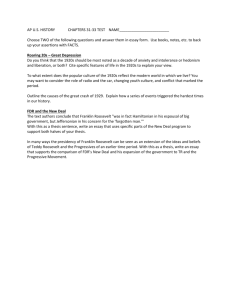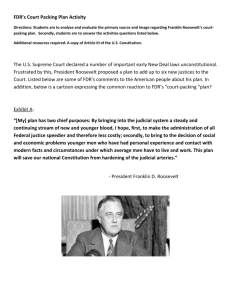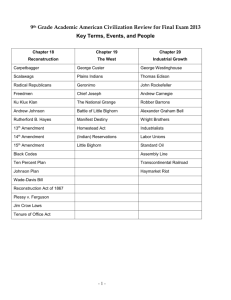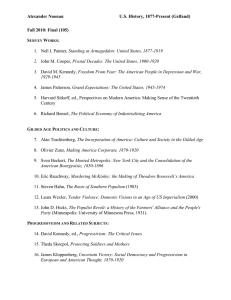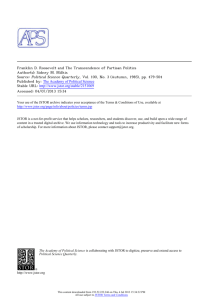Franklin D. Roosevelt, political philosophy of
advertisement
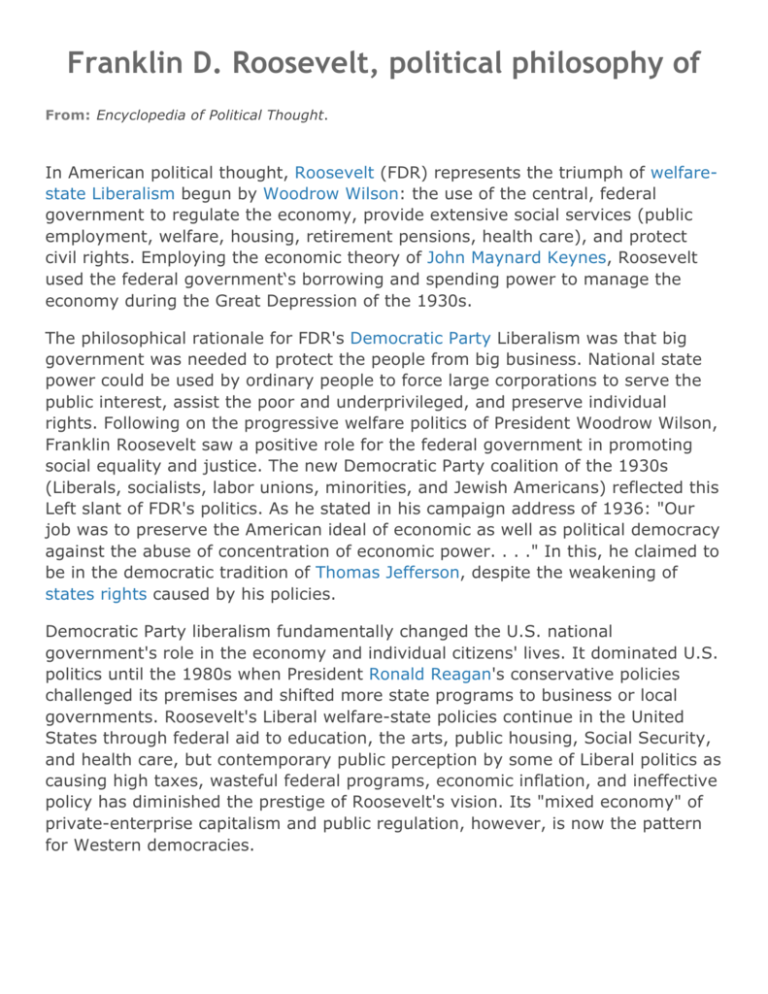
Franklin D. Roosevelt, political philosophy of From: Encyclopedia of Political Thought. In American political thought, Roosevelt (FDR) represents the triumph of welfarestate Liberalism begun by Woodrow Wilson: the use of the central, federal government to regulate the economy, provide extensive social services (public employment, welfare, housing, retirement pensions, health care), and protect civil rights. Employing the economic theory of John Maynard Keynes, Roosevelt used the federal government‘s borrowing and spending power to manage the economy during the Great Depression of the 1930s. The philosophical rationale for FDR's Democratic Party Liberalism was that big government was needed to protect the people from big business. National state power could be used by ordinary people to force large corporations to serve the public interest, assist the poor and underprivileged, and preserve individual rights. Following on the progressive welfare politics of President Woodrow Wilson, Franklin Roosevelt saw a positive role for the federal government in promoting social equality and justice. The new Democratic Party coalition of the 1930s (Liberals, socialists, labor unions, minorities, and Jewish Americans) reflected this Left slant of FDR's politics. As he stated in his campaign address of 1936: "Our job was to preserve the American ideal of economic as well as political democracy against the abuse of concentration of economic power. . . ." In this, he claimed to be in the democratic tradition of Thomas Jefferson, despite the weakening of states rights caused by his policies. Democratic Party liberalism fundamentally changed the U.S. national government's role in the economy and individual citizens' lives. It dominated U.S. politics until the 1980s when President Ronald Reagan's conservative policies challenged its premises and shifted more state programs to business or local governments. Roosevelt's Liberal welfare-state policies continue in the United States through federal aid to education, the arts, public housing, Social Security, and health care, but contemporary public perception by some of Liberal politics as causing high taxes, wasteful federal programs, economic inflation, and ineffective policy has diminished the prestige of Roosevelt's vision. Its "mixed economy" of private-enterprise capitalism and public regulation, however, is now the pattern for Western democracies. Text Citation: Sheldon, Garrett Ward. "Franklin D. Roosevelt, political philosophy of." Encyclopedia of Political Thought. New York: Facts On File, Inc., 2001. American History Online. Facts On File, Inc. http://www.fofweb.com/activelink2.asp? ItemID=WE52&iPin=polthot00374&SingleRecord= True (accessed December 20, 2011).



